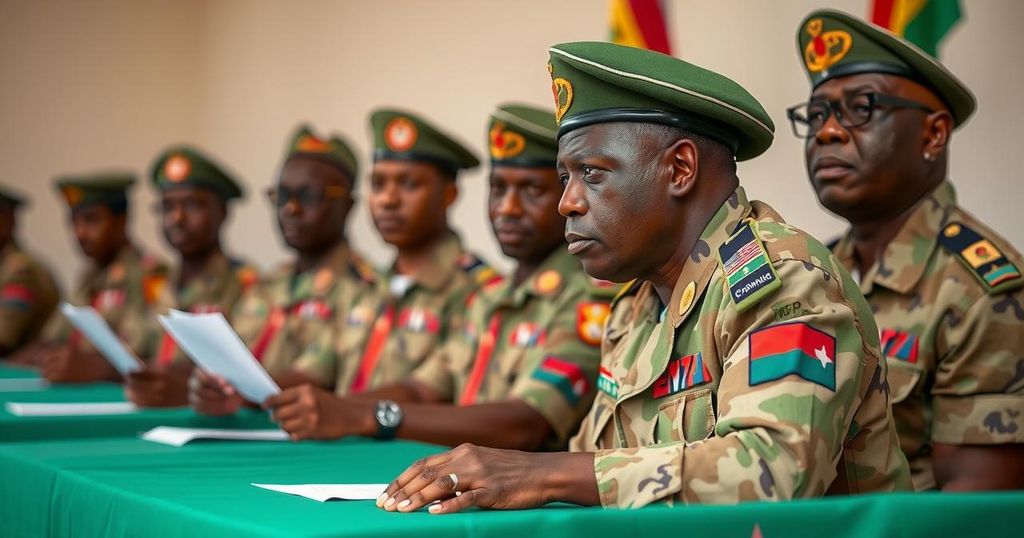Chadians are participating in a significant parliamentary and regional election that concludes a three-year military transitional period. This election, the first in over a decade, occurs amidst a boycott by major opposition parties, questioning the electoral process’s legitimacy, led by junta leader Mahamat Idriss Deby, following a disputed presidential election.
In a historic parliamentary election held in Chad, citizens cast their votes in a crucial democratic process following the end of a three-year military transitional period. The elections, being the first in more than ten years, follow recent controversies surrounding the leadership of Mahamat Idriss Deby, who assumed power after the death of his father, former president Idriss Deby Itno. Predominantly, the main opposition groups have chosen to boycott the elections, raising concerns regarding the legitimacy and inclusivity of the electoral process.
This election is pivotal as it signifies Chad’s efforts to transition back to civilian rule after a prolonged military governance marked by political unrest and public dissatisfaction. The national mood reflects a complex mix of optimism and skepticism regarding the future political landscape, particularly in light of the opposition’s withdrawal from participatory politics. The outcome of this election will be instrumental in shaping the nation’s governance and restoring faith in democratic institutions.
The recent parliamentary election in Chad marks a significant turning point, concluding a three-year period defined by military rule led by Mahamat Idriss Deby. Following the demise of his father, long-time president Idriss Deby Itno, Mahamat ascended the political hierarchy with the intent to stabilize and rejuvenate governance structures in Chad. However, the legitimacy of his rule has been called into question, especially in the wake of his disputed presidential election earlier this year and the subsequent decision by opposition factions to boycott the parliamentary vote. This situation reflects the broader challenges Chad faces in fostering democratic processes and ensuring political representation after years of authoritarian control.
In summary, the parliamentary election in Chad is a crucial step towards democratic reinstatement, yet its integrity is undermined by the boycott of major opposition parties. As citizens participate in this significant vote, the implications of the results will be closely scrutinized, impacting the future governance of the nation. Ensuring a transparent, inclusive electoral process will be vital for restoring public confidence in Chad’s political framework and moving away from a legacy of military rule.
Original Source: www.wdrb.com






